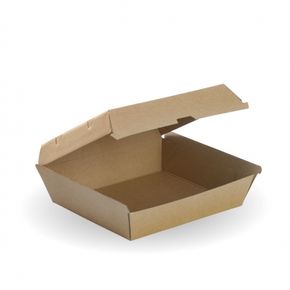- Home /
- Product Materials
Shop Now
- Accommodation Amenities
- Chemicals
-
Cleaning & Hygiene
- Air Fresheners & Deodorises
- Buckets
- Cloths, Wipes, Sponges & Scourers
- Dusters
- Floor Mats
- Garbage Bin Bags
- Garbage Bins
- Gloves
- Machine Accessories
- Mops & Brooms
- Nappies & Wipes
- Oil Filters
- Paper Dispensers
- Paper Hand Towel
- Safety & PPE
- Sanitary Units
- Signs
- Spray Bottles
- Squeegees
- Telescopic Poles
- Toilet Brushes
- Toilet Paper
- Towelettes
- Vacuum Cleaners
- Window Cleaning
- Customised Printing
-
Food & Retail Packaging
-
Bags
- Bag Ties
- Bottle Shop Bags
- Carton Liners
- Check-out Bags
- Clear Adhesive Bags
- Clear Freezer Bags
- Clear Hot Food Bags
- Clear Low Density Bags
- Clear Polypropylene Cello Bags
- Clear Polypropylene Food Bags
- Clear Resealable Plastic Bags
- Dry Cleaning Bags
- Ice Bags
- Paper Carry Bags - Die Cut
- Paper Carry Bags - Loop Handle
- Paper Flat Bags
- Paper Foil Lined Bags
- Paper Greaseproof Lined Bags
- Paper Printed Flat Bags
- Paper Satchels
- Plastic Boutique Bags
- Pouches
- Reusable Plastic Carry Bags
- Supermarket & Produce Bags
- Tin Tie Retail Bags
- Vacuum Seal Bags
- Wicketed Plastic Bags
- Baking
- Boxes
- Catering
- Cold Cups
- Cup Trays
- Docket & Order Books
- Food Wraps
- Hot Cups
- Kitchen Essentials
- Meat & Produce Trays
- News & Deli Papers
- Plates and Bowls
- Seasonal
- Silicone Paper
- Specialty
- Table Top
-
Takeaway Containers
- Barrier Meal Trays
- Chip Cups & Scoops
- Clear Plastic Containers
- Deli Containers
- Foil Containers & Lids
- Food Storage Containers
- Hot Food Boxes Printed
- Ice Cream & Sundae Containers
- KraftBoard Clams & Trays
- Lunch Boxes
- Noodle & Sushi Containers
- Paper Bowls & Lids
- Pizza Boxes
- Rectangular Plastic Containers
- Rectangular Sugarcane Trays & Lids
- Reusable Plastic Takeaway Containers
- Round Paper Bowls & Lids
- Round Plastic Containers
- Sandwich Wedges
- Sauce & Portion Cups
- Sugarcane Bowls & Lids
- Sugarcane Clams & Trays
- Tamper Evident
-
Bags
- Industrial Packaging
-
Kitchenware & Hospitality Supplies
-
2025 New Products
- Barware Additions
- Bormioli Rocco Additions
- Brew Milk Frothing Jugs
- Chef Inox Buffet Serve Hammered Bowls & Risers
- Chef Inox Kitchenware
- Chef Inox Kitchenware Additions
- Chef Inox Serving Bowls
- Chef Inox Storage
- Colour Coded Kitchen
- Force Cookware
- Tablekraft Fusion
- Tablekraft Linea Organics
- Tablekraft Urban Serve
- Tramontina Professional Master Black
- Zanzi Coaster
- Barware
- Buffet & Serving
- Cutlery
- Dinnerware
- Drinkware
- Eco-Friendly Disposables
- Guest Amenities
- Healthcare
- Janitorial
- Kitchenware
- Melamine
- Tea & Coffee
- Wash Racks
-
2025 New Products
ENVIRONMENTALLY FRIENDLY PACKAGING
What Options Are All Available? Let's take a look!

Sugarcane bagasse itself is a waste material, the dry fibrous residue left after sugarcane stalks have been crushed to extract the juice mainly for sugar manufacturing. When the fibers already crushed, less energy is required to make bagasse products compared with pulping wood for paper products.
Products made from sugarcane bagasse are strong and durable and the natural fibre is very pleasant to touch and breathable. Leak and oil proof, with no lining required. Microwavable (warm up only). Refrigerator safe. ISO 9001 and ISO 14000 certified.
End of Life Options: Sugarcane is compostable and recyclable and these products are made to decompose in a commercial composting facility within 60-90 days. They are also suitable for home composting. Complies with ASTM D6868 and EN13432 reports for compostability.

Fast growing bamboo regenerates quickly, making it a very sustainable choice. Bamboo Plants grow up to 1m a day, making them one of the fastest growing plants on earth. Bamboo doesnt require any irrigation either, and unlike trees, rarely needs replanting after being harvested. Because of how rapidly grow it can be harvested in 3-5 years. It is a great choice for food packaging and used in many takeaway food containers including cups.
End of Life Options: Bamboo, Pulp and Paper are all compostable and recyclable and these products are made to decompose in a commercial composting facility within 60-90 days. They are also suitable for home composting.
Another great choice for environmentally friendly packaging.
Cardboard is made from a renewable resource, compostable and easily recyclable, with decreasing production emissions.
The original raw material used for carton manufacture is wood fibre, as an option from sustainably managed forests. Additionally, at the end of life, cartons are collected and recycled and form a secondary raw material.
End of life options: Folding cartons can easily be recycled by reprocessing in a mill, where the fibres are separated. The recovered fibre is then used to make cartonboard or another paper or board product. Alternatively, they can either be composted, a process also known as “organic recycling”, or if recycling is no longer a viable option (product is contaminated with food), their energy content can be recovered in an energy-from-waste incinerator.
Also known as Eco Board or Kraft Board they are an excellent choice for the environment and for your businesses pocket reprensenting a low per unit cost for takeaway food packaging.

Areca (Palm) trees have large leaves, or fronds, which shed and fall to the ground every few weeks. The leaves are usually collected and burned. Our Palm Leaf range turns these leaves into disposable plates, bowls, platters – natural, compostable and biodegradable.
A strong, semi flexible yet not brittle, odourless, water and heat resistant leaf, this product has its own natural grains, characteristic texture and colour. Each one is unique. The palm leaf can be used to bake foodstuff and can even tolerate microwave cooking.
The leaves are sorted, and then washed and heat pressed into a variety of shapes such as bowls, plates and platters (this also sterilizes the leaf) maximizing the use of this beautiful natural Product.
No pulp, no starch, just a washed and pressed leaf. Totally natural.
End of life option: Use it again or you can compost it. If you don’t compost at home but you’ve got a garden, you could just break the plates up and spread the pieces round your garden. They will break down, enriching the soil like any other leaf, within a couple of months.
An excellent choice for the environment and a premium choice for your next catering event.

The PLA clear cups and deli containers, and PLA cutlery are made from PLA, a bioplastic produced from corn.
The production of PLA produces fewer greenhouse gas emissions. when compared to conventional plastic production.
End of Life Options: Products made from PLA bioplastics are compostable in industrial composting facilities only, and this option is not widely available across Australia and New Zealand just yet. Whilst PLA is Commercially Compostable, the best options for region is to Recycle them until facilities are built to break these down properly.
Please note, that PLA clear cups and containers are heat sensitive and must be stored out of direct sun, away from any heat sources and kept below 35°C. If they become too warm they can warp and lose their shape so store in a cool dark place away from anything too warm!
 PET Recyclable Plastics
PET Recyclable Plastics
Whilst the feedstocks for PET are petroleum-based, it is a highly energy-efficient packaging material. This is thanks largely to PET’s exceptional capacity-to-weight ratio, which means that more product can be put in less packaging and suppliers can save on fuel costs during transport.
End of Life Options: Compared to other transparent disposables such as glass and other plastics, PET has a far more favorable environmental impact during production. In terms of disposal, PET can simply be put into a plastic waste stream to be recycled.
These clear cups, lids and containers are low-cost, both for your pocket and for the environment, and great quality too. They can be used for cold food and drinks only but are very verstaile.

